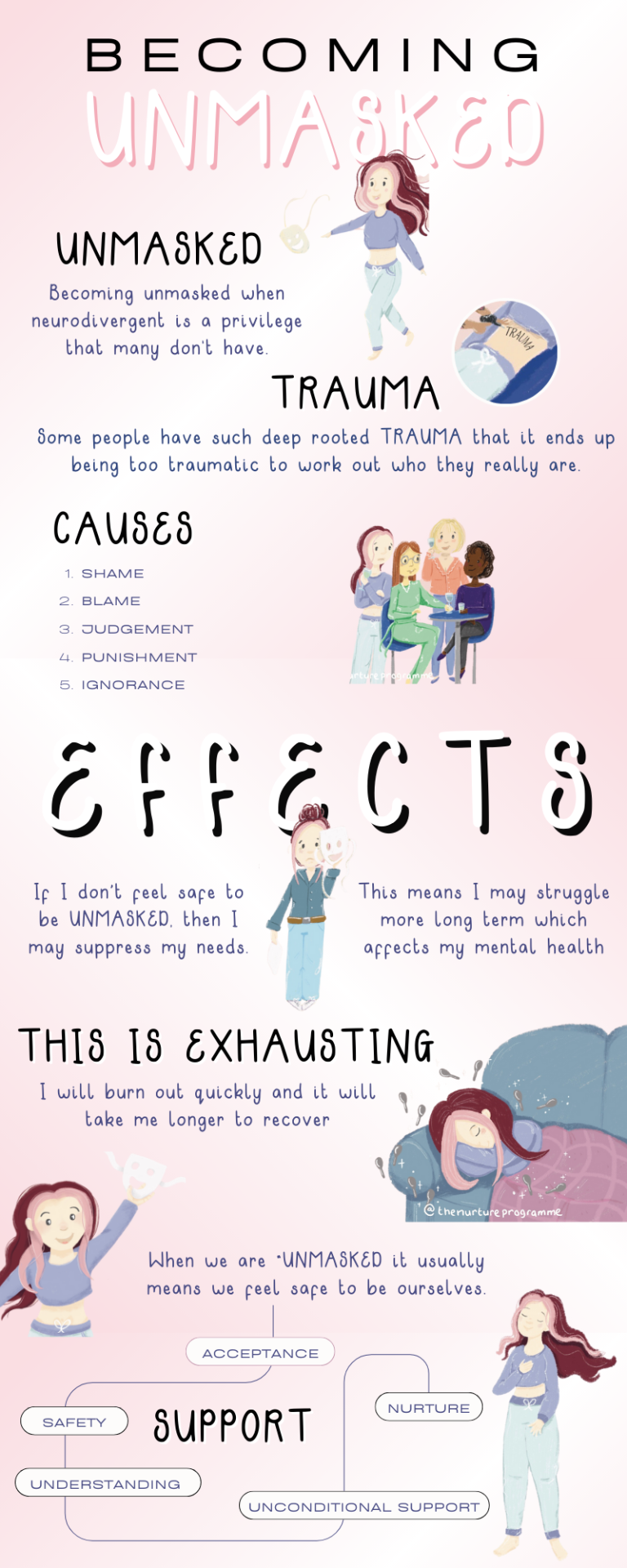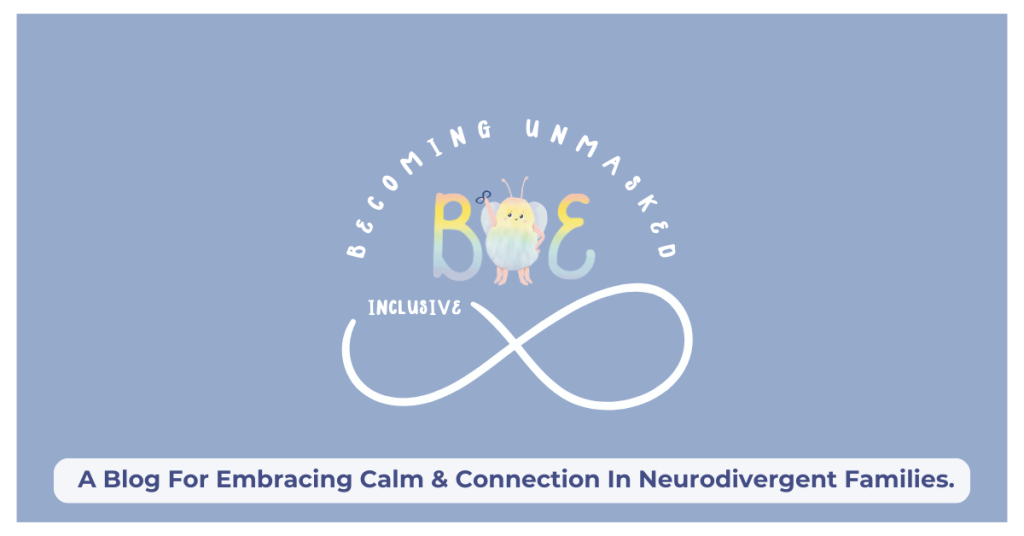Neurodiversity, an umbrella term for all brain types.
Neurodivergence, an umbrella term for divergent brain types that differ from the “norm” which excludes neurotypical. These differences can include autism, ADHD, dyslexia, among others.
However, living in a neurotypical world often forces neurodivergent individuals to ‘mask’ or hide their true selves to fit in. This series of info graphics is of my experience. There are many, many more experiences that will be different, that I haven’t experienced that would be wrong for me to try and explain such as the intersectionality of race and disability, or trans, LGBTQ etc. So whilst I don’t delve into those experiences I need to acknowledge that they exist and will also have a very different impact on any individual and their safety with unmasking.
The Process of Becoming Unmasked
For many neurodivergent individuals, becoming unmasked is a privilege they do not have access to. It requires a safe and accepting environment where they can openly express their unique neurological variations. When individuals feel safe to be themselves, that’s when they can truly ‘unmask’ and embrace their neurodivergence. Sometimes it isn’t safe for a variety of reasons and so many neurodivergent people are living in fear, in unsafe environments with the added mental health pressure that masking contributes to.
The Trauma of Masking
Constantly masking one’s true self can lead to deep-rooted trauma. For some, this trauma becomes so intertwined with their identity that unraveling it to discover who they truly are can be an overwhelmingly painful process. This trauma can stem from various causes, including shame, blame, judgment, punishment, and ignorance. These negative experiences can make a neurodivergent person feel unsafe and unsupported, further reinforcing the need to continue masking. Some people will mask because of Trauma and others suffer trauma because of masking. and also, this creates a trauma cycle that is difficult to maintain.
The Exhausting Effects of Masking
Living under a mask is not only traumatic but also mentally exhausting. When neurodivergent individuals feel pressured to suppress their needs continually and conform to neurotypical standards, it can lead to significant long-term struggles. This constant striving and suppression can severely affect their mental health, leading to burnout. Repeated burnouts can also slow down their recovery process, further straining their mental well-being. It is confusing, overwhelming, and excruciatingly difficult when the mask you wear is uncomfortable and you develop co-occuring disabilities such as OCD (Pure-O) and in your head lives this uncontrollable voice that berates, scolds, mocks, and shames you just like you feel on the outside. There becomes a point where there is no getting away from the judgment, the voices are too. loud and you crash!
The Importance of Support
Support plays a crucial role in helping neurodivergent individuals unmask and embrace their unique selves. When they feel accepted and understood, they are more likely to feel safe to express their true selves. This acceptance can come in various forms, such as nurturing, understanding, and unconditional support. These supportive elements can help create a safe environment where neurodivergent individuals can thrive without the need for masking. I wish for safe environments for our children to break this generational traumatic cycle of hiding who we are. Acceptance of our idiosyncrasies, our unique movements, our honest communication, our sensory preferences so that we can learn to love ourselves as we truly are.
It’s essential to understand the immense pressure and trauma that neurodivergent individuals undergo trying to fit into a neurotypical world. Recognising these challenges is the first step towards creating a more inclusive and accepting society where everyone feels safe to unmask and embrace their true selves.
Let’s strive for an environment where being ‘unmasked’ is not a privilege for a few but a fundamental right for all.
Allowing our children to feel safe to be free is the beginning of the change we need to see in order to improve our mental health difficulties and speak our truth.


